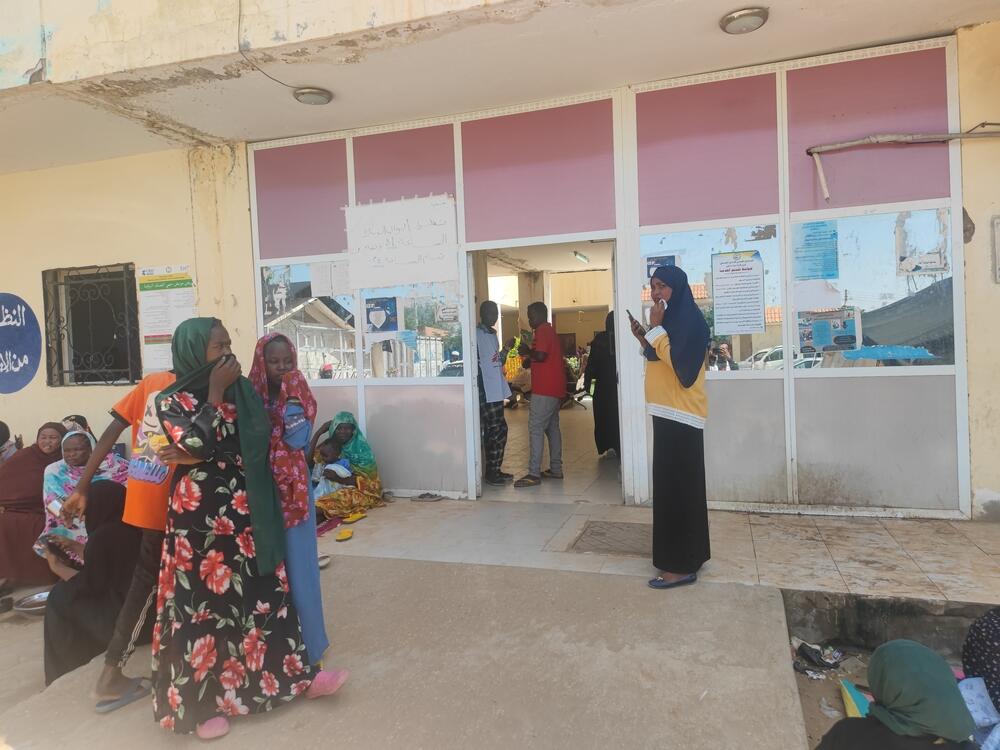Sudan: No place is safe as hospitals in El Fasher are repeatedly hit
Hospitals have been hit and deaths have soared as violent fighting engulfs the Sudanese city of El Fasher.
The intense, non-stop fighting in El Fasher leaves no safe place for people in the city as patients and medical staff are increasingly becoming part of the staggering civilian death toll. Médecins Sans Frontières / Doctors Without Borders (MSF) urgently calls for the protection of civilians, health workers and healthcare facilities.
After MSF-supported South Hospital was hit twice over the past few days, all three major medical facilities in the city have been damaged as the Sudanese Armed Forces and the Rapid Support Forces face off in North Darfur’s capital. Only two of these facilities are still able to function.
“We see a bloodbath unfolding before our own eyes in El Fasher. The intensity of the fighting is leaving civilians with no respite and now hospitals are being increasingly engulfed in the fighting, making it harder and harder to treat the wounded,” says Claire Nicolet, MSF programme manager for Sudan.
“Medical facilities should be protected and the warring parties should respect their neutral role as sanctuaries for the sick and wounded where people can safely receive medical assistance”.
Hospitals at risk
El Fasher’s South Hospital was first hit on 25 May, when a mortar landed on the ante-natal care unit killing one person and injuring eight among patients and their families.
The next day a shell landed inside the hospital and injured three more people, while its fragments from the explosion broke the windows of the delivery room and of the ambulance. Three other shells landed outside the hospital.
“South Hospital is very congested: it is the only hospital capable of treating the mass arrivals of wounded people and has received over 1,000 patients since fighting began in the city on May 10,” says Abdifatah Yusuf Ibrahim, project coordinator with MSF.
“Sadly, 145 of them were in critical conditions and died from their injuries. Now the hospital finds itself on the frontlines, with a significant risk of going out of service.”
Already, children in El Fasher had lost access to specialist treatment when a bomb landed close to the city’s only paediatric hospital on 11 May, killing two children who were in the intensive care unit and damaging the facility. Saudi Maternity Hospital was also hit on 19 May.

Help us prepare for the next emergency
We demand protection
“Health facilities must remain safe for patients and staff, who are working under intense pressure to treat those who are in critical need of healthcare,” says Claire Nicolet.
“We urge the warring parties in Sudan to spare medical facilities and respect their neutrality, and to uphold their obligation to protect civilians, healthcare workers and health structures.”
An MSF employee was killed on 25 May when his house, which was located close to the city's main market, was hit by the shelling in another demonstration of how no place in El Fasher is spared by the violence of this conflict.
MSF and the crisis in Sudan
On Saturday 15 April, intense fighting broke out across Sudan with a wave of gunfire, shelling and airstrikes.
The violence between the Sudanese Armed Forces (SAF) and the Rapid Support Forces (RSF) has trapped millions of people in the middle of an unexpected conflict. Many have been forced to flee their homes while access to essential services such as healthcare has become increasingly difficult.
Médecins Sans Frontières / Doctors Without Borders (MSF) teams already working in Sudan have been responding to the crisis since its first moments.
